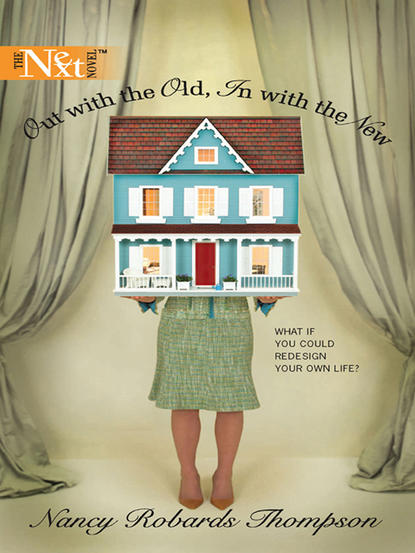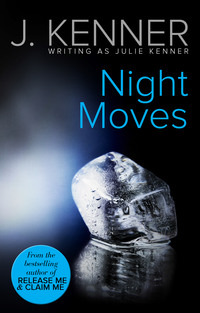
Полная версия
Perfect Timing
“Where’s he going?”
“He’ll ring Thomas for tea and will ensure we’re not interrupted. You looked like you could use a bit of a break, and I feel I must apologize for embarrassing you.”
“It’s really not—”
“Nonsense. Besides, you were enjoying the room and I interrupted. It’s the least I can do.”
Despite herself, Sylvia relaxed. There was something about Louisa she found comforting, even familiar.
“I think it’s the way I was raised,” Louisa said, making Sylvia blink with the change of subject.
“Excuse me?”
“Sex, I mean,” the older women said casually. Then, “Oh, thank you, Thomas. You can just set the tray right here.”
A butler in full livery had appeared in the doorway carrying a tea tray with a pot, two cups and an assortment of tiny desserts. Sylvia thought she ought to be impressed by the speed at which he’d prepared the tray—it was almost as if Louisa had been expecting company—but she couldn’t quite work up the energy. The whole day was turning out a bit baffling and surprising.
As soon as Thomas left, Louisa turned back to Sylvia. “It was my grandparents, you see. They were so incredibly in love, they couldn’t keep their hands off each other. Considering the era, it was probably quite scandalous, but I learned early on that sex is an expression of love, no matter how many electronic devices might be involved,” she added with a wink.
“I…um…oh.”
Louisa sighed. “I’ve gone and done it again. I was trying to make you feel more comfortable and I’ve just embarrassed you more.”
“Not at all,” Sylvia said. Which, of course, was a lie. “But I do think you’re naive.”
The second she spoke, she was afraid she’d insulted the older woman. To her surprise, though, Louisa just laughed. “Naive? My dear, I’m getting close to seventy. I’m a lot of things, but I’m no longer naive.”
“It’s just…well, your attitude about sex. It’s not always love, you know. Sometimes it’s about control. Power. Sometimes,” she whispered, mortified to realize her eyes were filling with tears, “it’s not a good thing at all.”
“Oh, sweetie,” Louisa said, taking her hand. “I certainly didn’t mean to belittle anything you’ve gone through. But it’s all a question of semantics, really. Don’t you think?”
Part of Sylvia wanted to race from the room. Another part wanted to protest. To clear up the perception—accurate though it might be—that Sylvia had been talking about herself. She never spoke about Martin. About what he did. Even to Tina she’d talked around the subject. Bits and pieces that let her friend draw her own conclusions. And Syl had only managed to reveal that much after ten years of friendship.
But to this woman, Sylvia had opened her heart in no time and with no warning. It terrified her, but for some inexplicable reason it also calmed her. And so instead of running, she stayed on the divan, leaned over for her tea, and asked simply, “What do you mean by semantics?”
“What you describe isn’t sex. It’s assault and battery. Using a sexual organ as a weapon, sure. But it’s not sex. It’s not a union.”
“I…” Sylvia trailed off, not entirely sure what to say to that. She wanted to believe it, actually. But wanting was a lot easier than doing.
“Don’t worry about answering me,” Louisa said. “Just smile and nod and indulge me my idiosyncrasies. It’s a wonder I haven’t gone completely batty what with strangers wandering through my home four days a week.”
“So you meant it,” Sylvia said. “When you said you lived here.” She sighed. “It’s a grand house. I’ve just moved into an apartment in the mid-Wilshire area. But someday, I want a house like this.”
“Do you?” Louisa cocked her head, looking at Sylvia in a way that made her squirm. “One day, I think you’ll get one.”
“Why do you open it up to the public like this?” Sylvia asked, realizing as she spoke that it was an incredibly nosy question. “I’m sorry,” she said, backpedaling. “That’s really none of my business.”
“No, no. Not at all. I can understand your interest. So many of these stately mansions have been turned over to charitable foundations. The upkeep on a house like this is…well, I have to have a very strong glass of sherry every time I go over the numbers with my accountant. But we’re actually one of the few that is self-sufficient.” She patted Sylvia’s hand. “Not that I’m bragging. It’s simply a fact of life.”
“A nice fact,” Sylvia said.
Louisa’s smile was soft and genuine. “Indeed.”
“So, if you have the money to keep the place operational, why all this?”
Louisa stood, gesturing for Sylvia to follow, then moved across the room to stand in front of the wall of portraits. She pointed to the one in the center. “Because of her,” Louisa said.
“I’m sorry?”
“That’s my grandmother,” Louisa explained. “She was a bit of an oddity in my family, but we always took everything she said very seriously.”
Sylvia studied the portrait, noticing with interest that it seemed somehow familiar. The woman there looked calm and self-assured, with light brown hair and green eyes highlighted by a slightly large mouth and high cheekbones. Not to mention ears that stuck out just a little too much.
With a start, Sylvia realized that the woman resembled her. How strange. But perhaps it explained why Louisa was so open. Maybe Sylvia’s resemblance to her grandmother made her feel more comfortable.
Louisa apparently hadn’t realized that Sylvia’s attention had wandered. She was still talking about the woman, and when Sylvia tuned back in, her interest was piqued. “She’s one of the reasons the family is so well-off,” Louisa was saying. “Had a head for speculative finance. Made a fortune in the stock market and real estate.”
“Nice,” Sylvia said. “But what does that have to do with opening the house?”
“Grandma insisted. For as long as I can remember, she would tell me that when I was older, I had to make sure the house was opened to the public. That we must allow traveling exhibits to tour. She made me swear.” A soft shrug. “And I agreed.”
“And you don’t know why?”
Louisa’s smile was almost shy. “I have my theories. At any rate,” she said, changing her tone and moving away from the portrait, “she was right. There’s a lot of history in this house.”
“Well, sure,” Sylvia said. “I mean Tucker Greene. He was a force in Hollywood. An amazing filmmaker. Who hasn’t heard of him?”
“And the Ragtime Strangler,” Louisa added.
Sylvia cocked her head, trying to remember. “That’s right,” she said. “I read something about that. A serial killer, but back in the twenties. Went after young, pretty flappers.” She frowned, her memory fuzzy. “I’m not an expert on Hollywood or anything, but I like Greene’s movies, so I’ve read a few articles and watched the extras on DVD remasters and stuff. If I remember right, the Strangler was stalking Beverly Hills before Greene got into film, right? He was doing something else. Radio, wasn’t it? One of my DVDs even included a new performance of one of his radio plays. It was pretty cool.”
Sylvia shut up then, realizing she probably sounded like an obsessed fan. Louisa, however, only smiled and looked delighted with Sylvia’s recollection. “You’re exactly right.”
“But what does this house have to do with the Strangler?”
“My grandparents caught him,” Louisa said. “Right in the next room.”
“Wow,” Sylvia said, truly surprised. “Thank you for telling me all this. It’s a beautiful house. It’s nice to know some of the history that goes along with it.”
The door opened, and Tina poked her head in. “There you are. I’ve been looking everywhere for you!”
“I’d better let you two finish touring the exhibit,” Louisa said. “It’s been wonderful talking with you, Sylvia. You take care.”
And with a quick smile, she glided out the doors with a regal nod to Tina.
“Who was that?”
“The lady of the house,” Sylvia said. “But—” She frowned.
“What?”
“I never told her my name.”
Tina looked at her dubiously. “Well, obviously you did.”
The hair on Sylvia’s arms seemed to tingle, as if she’d walked too close to a high-voltage fence. “Of course. I must have.” She nodded toward the door, but took one last look back at the portrait, struck by the feeling that she’d seen it once before. “Let’s go.”
“YOU HAVEN’T SAID anything for ten minutes,” Tina said. They’d moved into the Roaring Twenties room, filled with flapper gowns and silk stockings and the first bit of Hollywood memorabilia that Sylvia had seen—a large poster advertising the 1922 version of Robin Hood starring Douglas Fairbanks. The poster had been framed and propped on an easel. Sylvia squinted at it, noting that Fairbanks had signed it to “My good friend Tucker Greene.” Apparently Greene had had Hollywood connections even before he tried his hand at directing.
Sylvia smiled, feeling she’d learned a secret fact. Because certainly the poster had nothing to do with the exhibit. It was original to the room, unlike the rest. The flapper gowns and jewelry, along with the sheet music and photographs, had come with the exhibit. At first, Sylvia had thought this section of the exhibit seemed superfluous, but then she started reading the information printed on cards next to the various displays. The Twenties, it said, had been a coming-of-age period for young women. Affluence and postwar giddiness had combined to create a new sensuality and freedom, particularly felt by females. Exploration and sensual delights were at a high point.
“Sylvia!” Tina said. “Are you listening to me? Why are you so quiet?”
“Sorry! Just thinking.”
“About that woman? Or about flapper gowns. You’d look great in that, you know.” She pointed to a beaded gold gown with spaghetti straps and a fringed hem. The gown had no waist, just a thick band that seemed to settle around the mannequin’s hips. The outfit was topped off with a beaded headband highlighted by a dyed feather.
“You think?”
“Oh, sure. That’s the perfect style for girls without boobs.”
Sylvia shot a look to her friend. “Thanks. Thanks a lot.”
Tina shrugged. “It’s true. So, are you gonna tell me what’s on your mind or not?”
Sylvia wandered away from the gown. “I was just thinking about Louisa. The way the past is so alive for her.” She shuddered slightly. “Me, I’d just as soon forget my past.”
Tina snorted. “Who could blame you? And maybe then we could have a normal conversation about boyfriends and vibrators without you going all defensive on me.”
“I’m not defensive,” Sylvia said, even though she probably was. “And what’s so normal about discussing vibrators anyway?”
Tina just rolled her eyes. “I’m going down to the food cart. Coming?”
Sylvia started to say yes, but then she noticed the guard in the corner. And even though there was something oddly creepy about the way he watched her, there was something compelling, too. “I’m going to stay a bit,” she said, turning back to Tina. “I’m not hungry.”
“Suit yourself,” Tina said casually. “But let me have the backpack.” They’d both shoved their wallets, makeup and other tourist-girl essentials into a nylon Venice Beach daypack that Syl had picked up from a street vendor. Now, they were taking turns shouldering the thing.
Sylvia handed it over. “Spend your money,” she admonished with mock severity. “And stay out of my makeup.”
“Oh, sure,” Tina retorted. “Just spoil all my fun.” She aimed a grin at Syl, then headed out the door. “Catch you in a bit.”
Sylvia watched her go, shaking her head in amusement.
“Letting go of the past,” a voice said. “Now that’s something I bet a lot of people would like to do.”
Sylvia spun around, surprised to see that the guard had moved silently to stand beside her. “Pardon me?”
“I overheard you and your friend,” he explained, his smile friendly. “Sometimes it’s not about escaping your past, you know. Sometimes, it’s about confronting it.”
Sylvia squinted at him. “Aren’t you…” She trailed off, lifting the exhibit brochure and glancing at it. Sure enough, the guard she was talking to was pictured right there. How odd.
“I travel with the show,” he said. “Keep an eye on things. Make any adjustments that might be needed. That kind of thing.”
“Oh. Right.” She frowned, not really in the mood to talk to strangers, no matter how kindly. “I’ll just go catch up with my friend.”
“Of course, miss.” He stuck his hand in his pocket, pulled out a quarter, and started twirling it between his fingers. She watched, fascinated by the agility with which the coin danced over his hand, weaving in and out, over and under and then—snap!—falling to the ground and rolling under the easel with the Fairbanks movie poster.
“Oh! And you were doing so well, too.”
He nodded toward the easel. “I don’t suppose you could snatch that thing back for me? These old knees don’t get down on the ground like they used to.”
She hesitated, not entirely sure why, then realized she was being ridiculous. “Sure. No problem.” She edged toward the poster, keeping her eye to the ground as she looked for the coin. “There you are,” she whispered, bending down. As her fingers closed around it, she felt something shove her from behind. She toppled forward, slamming against the poster and then actually tumbling through it.
But that couldn’t be right. Just her mind playing tricks as a wave of dizziness crashed over her. Her knees went weak and she sagged to the floor.
And the last thing Sylvia remembered thinking was that if she was going to faint, that guard had damn well better say “thank you” when she gave him back his coin.
CHAPTER TWO
TUCKER LEANED AGAINST the railing and watched the swirling, whirling melee below him. His sister, intent on garnering a reputation for throwing the best parties in Beverly Hills, had gone all out with this one. Everyone who was anyone had been invited, and even more had breached the door without invitations. The masquerade theme was fitting, allowing the guests to quaff the illicit alcohol with less fear of recognition. And, surely, the family’s social position assured that they would not be troubled.
Mostly, though, Tucker knew that the guests had come to slide into the oblivion of amusement and temporarily forget the undertone of fear that so recently colored the neighborhood. Fear of a killer who had attacked the community’s women. The Ragtime Strangler they were calling the beast, and the very thought made Tucker’s blood boil, his hatred of anyone who would so intentionally cause pain to a woman cutting at him like the blade of the knife the killer had wielded.
With effort, he forced himself not to think of that, turning his thoughts back to the party and his sister. He looked down, surveying the scene. Women in white with gossamer wings. Men with harlequin collars, their faces painted with black and white greasepaint. And everyone dancing, flirting, laughing. And, of course, drinking.
Honestly, he should be down there with them, but somehow he couldn’t quite work up the energy. He didn’t begrudge his sister her need for entertainment, but he didn’t feel lighthearted enough to join in the fun. The horrors he had seen during the Great War had robbed him of a certain ability to escape into mindless fun. And the specter of the Strangler made him wary, unlike his peers who danced and drank to forget.
Mostly, though, Tucker was occupied with his own worries. Specifically, his mind was whirring, busy plotting ways to kill off Detective Spencer Goodnight, Los Angeles Police Department.
He needed something spectacular, of course. Something that did justice to Spencer’s illustrative career. Something that pitted Spencer against a formidable enemy, like Holmes against Moriarty.
Too bad Tucker had never created a Moriarty-like character within the Goodnight: Los Angeles cast. An astonishing lack of foresight on his part, but he’d certainly never planned on ending the show. Why would he? Of all the radio shows broadcasting from Los Angeles, his was one of the most popular. Families tuned in each week for Spencer Goodnight’s next adventure. Certainly Tucker would never get another job in radio after pulling the plug on such a popular—and profitable—enterprise.
That sad fact weighed on him, but bearing down equally hard was the fact that he had no choice. His father had spoken. And in the Greene household, the Colonel’s word was law.
Some things, it seemed, were simply too good to be true. And some dreams were destined to die.
As, apparently, was Spencer Goodnight.
Perhaps an ocean liner. Something along the lines of Titanic. Goodnight could be on a pleasure voyage. A deb murdered in a grisly fashion. Goodnight finds her killer. But the victory is bittersweet when the ship hits an iceberg and—
“Desperately dull, isn’t it, love?”
Tucker jumped, yanked from his fantasy by his sister Blythe. She took a long drag on a cigarette, precariously settled at the end of a silver holder. She tapped the holder against the railing, releasing a flurry of ashes to the crowd below as she watched him, her expression filled with ennui.
“My dearest Blythe, if the hostess is bored, whatever does that say about the quality of the entertainment?” He knew, of course, that his sister was far from bored. With their parents in London for the summer, Blythe had made sure that the Greene family’s Beverly Hills estate was the after hours destination for anyone who was anyone.
“The entertainment is just fine,” she said, with a twinkle in her eye.
Two flappers ran behind them, giggling as two fellas chased them, champagne sloshing from crystal flutes as they ran.
“Must be me then,” Tucker said, turning away from his sister to watch the crowd below him.
“Darling, it’s always you.” She leaned over and pecked him on the cheek. “You’re supposed to be mingling, you know. Playing the host.”
“And steal your spotlight? I wouldn’t dream of it.”
She laughed, then snagged the sleeve of a passing woman. “Lizzy, be a love and find me a drink. I’m positively parched.”
Blythe’s former school chum winked at Tucker, then disappeared into the crowd, returning momentarily with two flutes of champagne. “The best the host has to offer,” she said.
“And the hostess has very good taste,” Blythe said, lifting her flute.
“I have good taste, too,” Lizzy said, sliding an arm around Tucker’s waist. She batted her lashes, then pressed her hip flirtatiously against his crotch. Lizzie had suffered under an infatuation with him since she’d been in diapers and Tucker in short pants. Never once during those years had he returned her admiration. Even so, since Tucker was neither dead nor a saint, he found himself immediately standing at attention, his body suddenly interested in the young woman who’d never before captured his eye.
Lizzy noticed, of course, and cupped his crotch. Then she giggled, and he had to wonder just how much naughty salt had tickled her nose. Not that the effect would lessen her appeal in bed. Quite the opposite, actually. A happy side effect of the powder was a certain exuberance among the women in his bed.
Blythe took a sip of her champagne, arched an eyebrow and made a graceful exit, leaving Tucker and Lizzy alone.
He pulled her close, then crushed his mouth over hers, the beads of her dress making a satisfying shooshing sound as it scraped against his suit. He grabbed her, his hands tight on her soft rear as he pushed her toward him, their bodies grinding together. So easy, he thought. So easy to lose himself in her. A little sex, a little dance, a little drink. And maybe he could forget his problems. At least until the sun came up.
“Why, Tucker,” she said, when they came up for air, “I didn’t know you cared.”
She was teasing, of course, but the words struck him in the gut, knocking him off-kilter. Because he didn’t care. Not about the business he was being forced to inherit from his father. Not about the parties his sister lived for. Not about this girl.
He cupped her face in his hands, then pressed a kiss to her forehead. “Go find Roger, Liz,” he said, referring to the boyfriend she’d tossed aside a mere two days ago. “Tell him you want to dance.”
“I—” Her wide eyes, painted with blue and gold, blinked at him, full of hurt.
Tucker couldn’t help himself. He smiled. “Darling Liz,” he said. “It’s not me you want. It’s this.” He took her hand and pressed it against his crotch. Then he swept his arm to encompass the room. “And there’s a lot of that out there.”
He held his breath, afraid he’d pushed her too far, expecting the sting of her palm against his cheek. It didn’t come. Instead, the corner of her mouth lifted, and then she laughed.
“Tucker, darling, you are a wonder.” She pressed a quick kiss to his cheek, then left in a shimmy of beads and feathers, leaving Tucker not sure whether he should be relieved that she left so easily or insulted that she didn’t get into a snit.
He decided to go with relief. Much easier, especially since it was true. Honestly, it wasn’t Blythe’s party that bored him so much as it was the guest list. Particularly the guests of the female persuasion.
Although they put up a good show—as did he, of course—he had yet to find a woman who was truly interested in him. His money, yes. Or the bit of celebrity that came from writing the Spencer Goodnight broadcasts.
Mostly, though, the girls were interested only in getting in his bed. As if he were there to be conquered.
To a certain extent, he supposed that was true. For that matter, he wasn’t entirely sure why he minded. The good Lord knows he’d conquered his share of females. Lately, though, he’d found himself restless. And the idea of bedding another flighty female simply held no appeal.
“Tucker, old man. There you are. Why the devil are you hiding out up here?”
Tucker turned to see Jonathan Straithorn coming toward him, his arms out wide. Jonathan’s family lived a few doors down, and he tended to appear whenever Blythe threw one of her parties. A nice enough fella, though Tucker couldn’t say he knew the man well.
“So many lovely women for the pickings. Or men, if that’s your particular poison.” Jonathan cocked his head, indicating the far side of the gallery and the two Ethels, heads so close together Tucker could practically see the heat rise between the two men, so obviously infatuated with each other.
“It’s not,” he said succinctly.
“Nor mine,” Jonathan agreed. “If those two aren’t careful, they’ll end up in the papers. Rumor is that the Tattletale is here. Along with a crasher toting a camera.”
“Bloody hell,” Tucker said, irritated that the infamous gossip columnist had crashed the party. He leaned over the rail, scouring the crowd for an unfamiliar face or anyone carrying a camera or a flash pad. The exercise was futile, of course. No one looked familiar. And considering the density of the crowd, he probably wouldn’t notice a photographer until the flash powder ignited.
“Bloody hell,” he repeated. “You would think with the Strangler still roaming the city the news hounds would have better things to do than chase gossip.”
“Ah, but the Ragtime Strangler’s a mystery,” Jonathan said. “Nothing but questions. Who is he? When will he strike next? Who will be his next victim?” He shrugged. “Not much to report there. But the loves and affairs of the social elite? That, my friend, sells newspapers.”
Tucker eyed him curiously. “A very passionate speech. I’d almost think that you are the mysterious Tattletale.”
Jonathan chuckled. “I assure you, I am not. Though I will admit to having some secrets.”
“Do you now?” Tucker asked, smiling at his neighbor. “You pique my curiosity. Be careful, or I’ll have to enlist Blythe’s aid. She could coerce a secret out of a priest.”
“I imagine she could,” Jonathan said with a tight smile. “And I could only dream of being so lucky as to be the subject of your sister’s coercive tactics.”
“Jonathan, I’m sorry,” Tucker said earnestly. “I didn’t mean—”












